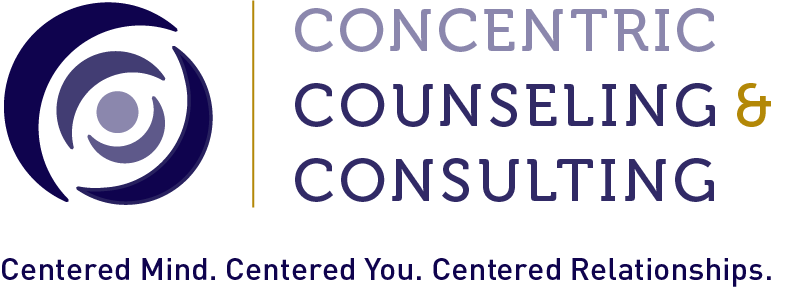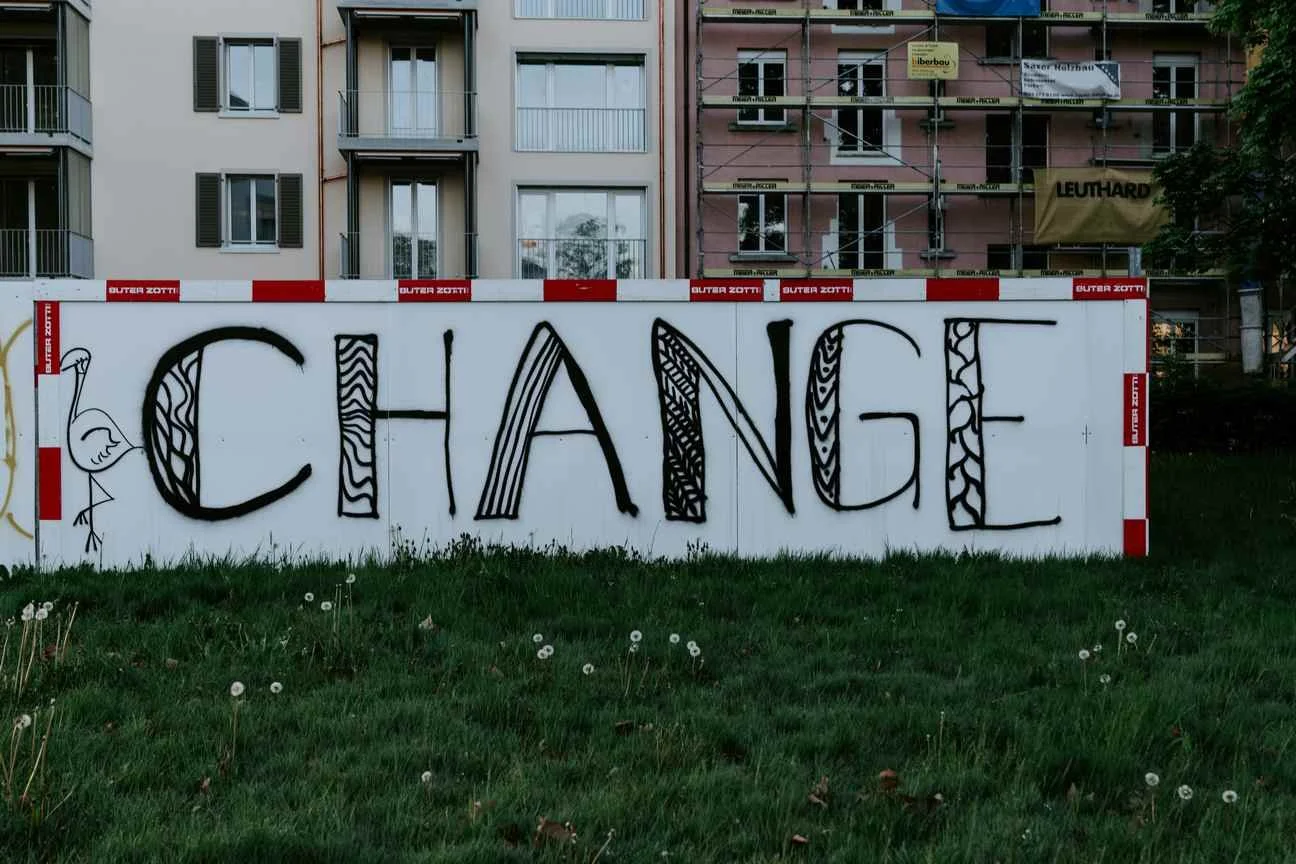Stages of Change: Using the Transtheoretical Model to Understand Addiction
/By Concentric Counselor Charles Weiss, LCPC
If the dopaminergic receptors in my brain didn’t make me feel so good when stimulated and weren’t so intertwined as well as interwoven with my serotonin levels and that my GABA receptors didn’t inhibit my nerve transmission leading to my brain activity level to be depressed, I would have never used in the first place. Do people who suffer from addictions really think like this? Do they really understand the intricacies on how drugs affect the brain and other physiological aspects of their bodies? If they had that insight or answers, would they still want to get high, continue rationalizing the reasons in which they use or actually seek out help?
For the change process of the individual to be effective and impactful, it is helpful to better understand how certain drugs affect the brain. Different drugs when taken affect different aspects of our brain functioning. For example, alcohol is a depressant, which slows down or depresses our Central Nervous System, which helps reduce anxiety and inhibit relaxation in our body. It slows down brain activity through binding with GABA receptors to help with minimizing racing thoughts, rapid breathing and quick pulse. Substances like opioids and stimulants, that target the pleasure center in our brain, which involves the Dopamine neurotransmitter, provide us with that “feel good response” that makes it more difficult for people who are addicted to want to quit. Let’s not forget the cannabinoid receptors that are naturally occurring neurotransmitters that our brain produces, which Tetrahydrocannabinol (THC) and cannabidiol latches onto. When this occurs, we often experience a more euphoric feeling and our sensory perceptions are often enhanced, which also increases the level of dopamine that is being produced in our brain. This list is just to name a few of the more widely used substances individuals can become addicted too.
Substances have the propensity to be both psychologically and physiologically addicting, meaning either the body and/or our mind needs the drug to avoid potential withdrawal. Not everyone who tries a substance for the first time will become instantly addicted, however, it can increase their risk of them wanting to try it again because of how it made them feel.
It is not just the neurochemistry in the brain that makes a person struggling with addiction want to use, but the stages of the change they are in can have an impact and effect into the chronicity of their use. Prochaska and DiClemente postulated a Transtheoretical Model or what many might know as the “Stages of Changes” that people can experience when it comes to their understanding their addiction and their willingness to cease it.
This model has 5 stages that an addict can experience, with a sixth called Relapse, which I will discuss later, that indicate the individual’s willingness of wanting to continue or cease the use of the substance(s). This model can also apply to a wide range of other behavioral challenges that individuals are having an arduous time in overcoming, not such substance use, abuse, or dependence.
Stage 1- Precontemplation
Pre-contemplation is when an individual doesn’t think they have a problem with the drug and/or substance they are using and aren’t willing to change their behavior. Oftentimes these individuals are in denial that their addiction is a problem, they have not connected the experience of the negative consequences of their addiction or understand the severity of their addiction at this time. They are currently enjoying and appreciating the positive and pleasurable effected of their addiction, the “high” and positive aspects of the substance they are using due to neurotransmitters that substance targets to cause this affect. It often isn’t until the individual begins to experience more of the negative aspects of the substance (i.e.: withdrawals, negative consequences from their addiction), will the individual begin to consider they might have a problem and move from pre-contemplation to the contemplation stage.
Stage 2 - Contemplation
Contemplation stage typically occurs when individuals have the self-talk about the challenges and struggles in wanting to make a behavior change, yet are unable to pull the trigger at this stage and follow through with their thoughts of wanting to change or cut down their use. Individuals are typically open to listening to advice on how they can change their behavior, to gain a bit more insight into their addiction, understanding the consequences of their addiction, but have not established and/or developed a specific plan on how they would like to change their behavior. Utilizing a non-judgmental attitude and motivational approaches to encourage change, such as beginning to teach individuals a harm reduction approach, can help propel the individual towards the preparation stage of change.
Stage 3 – Preparation
During this stage of change, individuals are starting to become more committed into wanting to change their behavior and develop plans on how they can begin minimizing the frequency and occurrence in which they are using substances. Individuals start to gain more insight into the impact and effects the substances have on their level of functioning and the dysregulation of neurochemistry in their brain through collecting and gathering resources either provided to them or investigating these resources for themselves. They become more cognizant of their triggers and begin learning more effective strategies to minimize the occurrence of them as well as seeking out and developing healthier support systems to aide in their recovery. Individuals begin to gain more insight into the consequences their addiction is having on their level of functioning.
Stage 4 – Action
As the insight and introspection into their addiction becomes more “front and center”, individuals are able to begin developing plans to implement to aide in their recovery. Now all the preparation that was exerted and exhibited in the previous stage can be put into motion. As stressful as this stage can be, it is the best time when interventions such as seeking out a Certified Drug and Alcohol Counselor (CADC), licensed therapist or going to a substance abuse or detox center can be most impactful and continue to move as well as guide the individual towards their recovery. With a trained and licensed professional, appropriate and realistic goals can be established to be addressed gradually as well as developing more adaptive over maladaptive coping skills that are taught to help move the individual towards the maintenance stage.
Stage 5 & 6 – Maintenance/Relapse
After the strenuous time it takes into in acknowledging, accepting and putting into motion plans that become action, maintenance follows. This is time in which the individual is able to maintain sobriety for at least 6 months of implementing everything they have learned in treatment and progress on the goals they have developed for themselves. During this time, individuals might begin to feel complacent or feel like there is some plateau they have reached with their progress, that defaulting into their maladaptive habits might be inevitable. However, with the continual commitment and support to their recovery, maintenance can be an obtainable long-term goal.
Part of any recovery can be relapse, although not everyone experiences relapse(s). When an individual relapses, they don’t necessary default back to Stage 1 - Precontemplation. If the individual is committed and with ongoing positive support they have created for themselves, they might only fall back a stage to Action and/or potentially Preparation Stage. It unfortunately might take an individual several relapses before they are fully committed to the change process. The goal is never to give up and continuing reinforcing yourself of your commitment of wanting to make the behavior change in being able to abstain from one’s substance of choice, such as alcohol or illicit substances.
If you or a loved one is struggling with any addiction, please seek out professional help. There are countless resources available that can help and aide you in your recovery. Change doesn’t happen overnight, but understanding as well as acknowledging that you might have a problem is the first step in your journey to change and living a healthier and more fulfilling lifestyle. This Transtheoretical Model or Stages of Change by Prochaska and DiClemente might not be applicable to everyone, but it can be applied broadly to anyone who is willing and wanting make the necessary change to improve their overall lifestyle and to be a better you.


